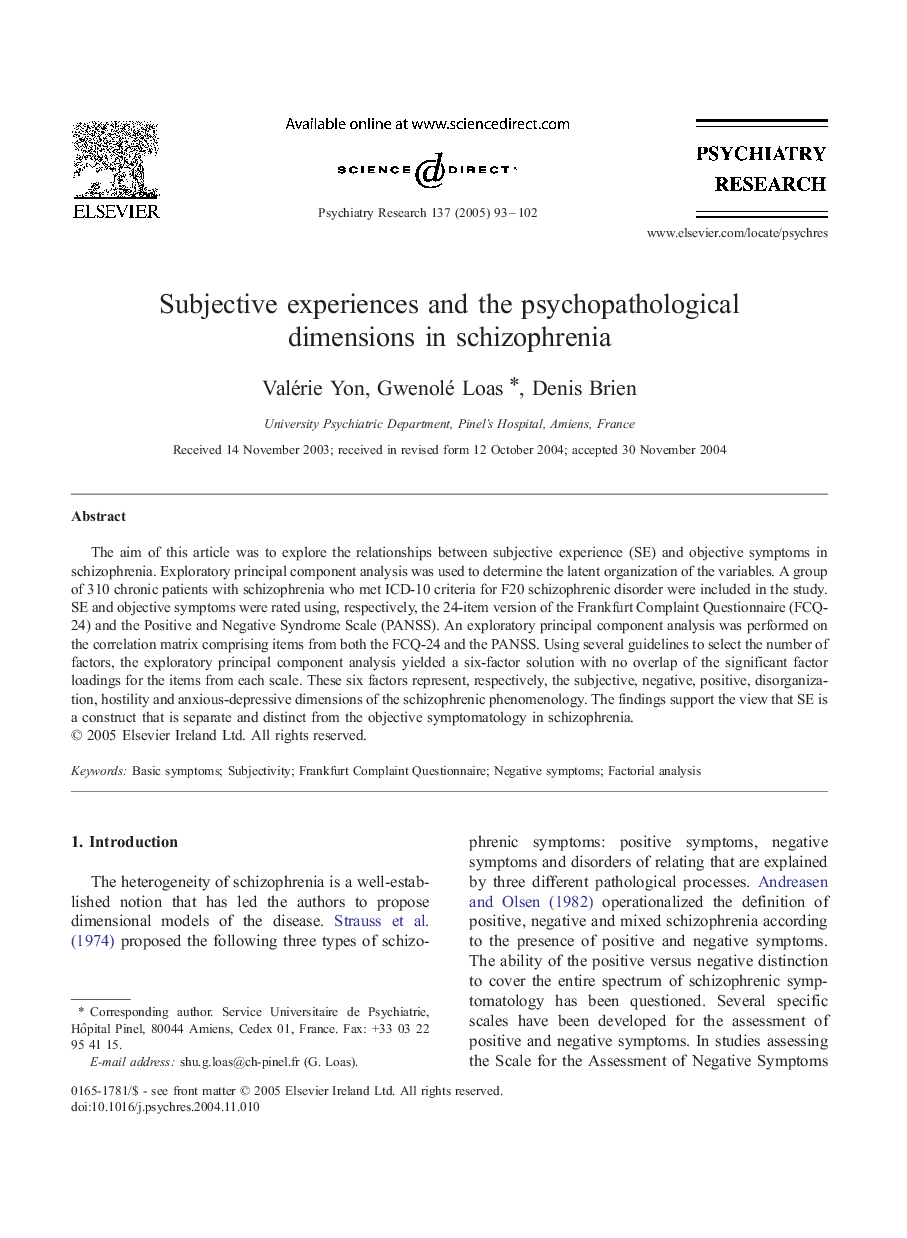| Article ID | Journal | Published Year | Pages | File Type |
|---|---|---|---|---|
| 9645957 | Psychiatry Research | 2005 | 10 Pages |
Abstract
The aim of this article was to explore the relationships between subjective experience (SE) and objective symptoms in schizophrenia. Exploratory principal component analysis was used to determine the latent organization of the variables. A group of 310 chronic patients with schizophrenia who met ICD-10 criteria for F20 schizophrenic disorder were included in the study. SE and objective symptoms were rated using, respectively, the 24-item version of the Frankfurt Complaint Questionnaire (FCQ-24) and the Positive and Negative Syndrome Scale (PANSS). An exploratory principal component analysis was performed on the correlation matrix comprising items from both the FCQ-24 and the PANSS. Using several guidelines to select the number of factors, the exploratory principal component analysis yielded a six-factor solution with no overlap of the significant factor loadings for the items from each scale. These six factors represent, respectively, the subjective, negative, positive, disorganization, hostility and anxious-depressive dimensions of the schizophrenic phenomenology. The findings support the view that SE is a construct that is separate and distinct from the objective symptomatology in schizophrenia.
Related Topics
Life Sciences
Neuroscience
Biological Psychiatry
Authors
Valérie Yon, Gwenolé Loas, Denis Brien,
